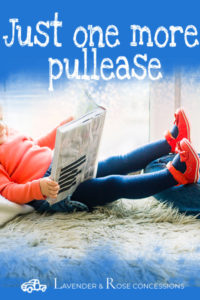
There’s lots of talk about what kids need while we isolate! I’ve heard routine, resiliency, relationship. Let’s add reading!
A routine of reading to kids benefits them exponentially. For one thing, the soothing quality of a parent’s voice engrossed in reading tells kids “it’s going to be OK.” For another, it makes safe space for the discipline required to process story and events and create pathways for comprehension. Even the way we shelve books helps kids. And all of that without mention of content or analysis.
reading nurtures
In her helpful book “Reader Come Home: The Reading Brain in a Digitized World,” author and scientist Maryanne Wolf stresses the importance of reading to small children. Reading parents automatically adjust to the child – word clarity, melodic contour, and speed of speech – instilling in even small ones the ability to learn the function and joy of words. The benefits to brain development are obvious. Furthermore, when parents read aloud, there’s unparalleled opportunity to share imaginative adventure, to connect thoughts, to consider new perspectives. In the safe environs of lands unknown, arrived at via the frigate of a book, kids see tears in daddy’s eyes, hear mommy’s belly laugh. Reader and listener pass over into the feelings, imagining, and thoughts of others. Empathy grows, knowledge of the world is internalized, and togetherness roots deeper.
Reading nurtures deep brain growth and empathetic emotional development. Sure, we can watch movies that wonderfully make us laugh or cry. But, according to Wolf, deep brain development requires the “cognitive patience to immerse ourselves in the world created by books and the lives and feelings of the ‘friends’ who inhabit them.”
bookshelves
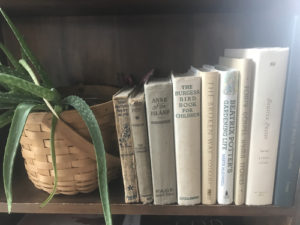
Tony Reinke, in “Lit,” offers an excellent analysis of reading. He points out the value of the time taken to close a book, to shelve it where it belongs (subconsciously noticing color, texture, and surroundings), and to walk away. Those moments allow our brains to process what we’ve read.
So, let kids make a project out of organizing their books. They love baseball? All the baseball books in one place. Crafts? All craft books shelved or piled together. Favorite fiction? You get it. A simple task, but valuable. Sure it’s a way to organize information, but it’s also an act of solace. There’s comfort in creating a place for those good friends. For me, whenever we’ve moved, once the books are placed, I feel like I’m home.
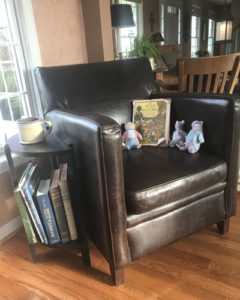
Until I read “Lit,” I would try to finish one book before beginning the next. Now I have piles of books everywhere. I read various types of books at different times of day. As Reinke points out, you’ll never be able to read every book, so don’t think you need to finish every book you begin (except the Bible). Read what you need.
ADVENTURE
To what lands unknown have you and your kids traveled during this spectacular isolation opportunity? Just a couple of ideas, if you haven’t already…
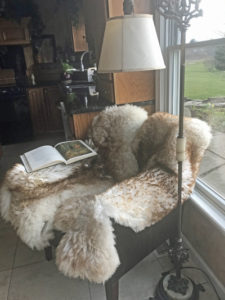
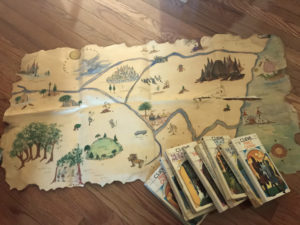

finally, what kind of book is it?
Teach your kids to categorize everything they read or hear into one of the following four “kinds of books.” This gives them a critical thinking tool that will serve well all their lives. I learned this category structure from “What is a Family?” by Edith Schaeffer, of whom I am a bona fide groupie (because I definitely plan to follow her around in heaven and get her orange roll recipe).
- Fantastical Fiction – couldn’t be real in our world as we know it. A wonderful and rich genre, attested by the above pictured well-loved copies of MacDonald, Tolkien, and Lewis. Like Laura Weymouth’s “A Treason of Thorns.”
- Realistic Fiction – could be real, but as you read, recognize it didn’t really or exactly happen that way. Like “Reseda.”
- Perceived Truth – every text book, media propaganda, biography, etc fits here. people are trying to relate truth as they perceive it. Often you learn more about the person writing than about the topic.
- Absolute Truth – only one book, the Bible, God’s Word, the Scriptures. Authored by the One who is Truth. This is the book we need to read, meditate on, and obey – every single day.
As a child and a teenager I was an avid reader…even under the covers late at night with a flashlight in hand. Then enjoyed sharing the moments before bed reading to the special children I babysat many nights with, and then finally my own two wonderful boys. Many special, treasured memories came from my time with books!
I’m sure your two boys have a treasure trove of reading memories, a gift from a most wonderful mama (and babysitter)!